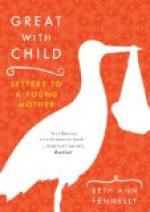A black board and a piece of chalk, along with a little ingenuity on the part of the mother, will furnish the child with an almost endless variety of amusement. Let him attempt to imitate almost any object which interests him, whether among the works of nature or art. However rude his pictures may be, do not laugh at, but on the contrary, endeavor to encourage him. He may also be permitted to imitate letters and figures. The elements of letters, too, both printed and written, may be given him, and he may be required to put them together. Dissected pictures, as well as dissected maps and letters, are useful, and to most children, very acceptable.
In short, the devices of an ingenious, thinking mother, for the amusement of her very young children, are almost endless; and the great danger is, that when a mother once enters deeply into the spirit of these exercises, she will substitute them for those much more healthy ones which have been already mentioned, such as require muscular activity, or may be performed in the open air.
CHAPTER XII.
CRYING.
Its importance. Danger of repressing a tendency to cry. Anecdote from Dr. Rush. Physiology of crying. Folly of attempting wholly to suppress it.
“Crying,” says Dr. Dewees, “should be looked upon as an exercise of much importance;” and he is sustained in this view by many eminent medical writers.
But people generally think otherwise. Nothing is more common than the idea that to cry is unbecoming; and children are everywhere taught, when they suffer pain, to brave it out, and not cry. Such a direction—to say nothing of its tendency to encourage hypocrisy—is wholly unphilosophical. The following anecdote may serve in part to illustrate my meaning. It is said to have been related by Dr. Rush.
A gentleman in South Carolina was about to undergo a very painful surgical operation. He had imbibed the idea that it was beneath the dignity of a man ever to say or do anything expressive of pain. He therefore refused to submit to the usual precaution of securing the hands and feet by bandages, declaring to his surgeon that he had nothing to fear from his being untied, for he would not move a muscle of his body. He kept his word, it is true; but he died instantly after the operation, from apoplexy.
There is very little doubt, in the mind of any physiologist, in regard to the cause of apoplexy in this case; and that it might have been prevented by the relief which is always afforded by groans and tears.
It is, I believe, very generally known, that in the profoundest grief, people do not, and cannot shed tears; and that when the latter begin to flow, it affords immediate relief.
I do not undertake to argue from this, that crying is so important, either to the young or the old, that it is ever worth while to excite or continue it by artificial means; or that a habit of crying, so easily and readily acquired by the young, is not to be guarded against as a serious, evil. My object was first to show the folly of those who denounce all crying, and secondly, to point out some of its advantages—in the hope of preventing parents from going to that extreme which borders upon stoicism.




